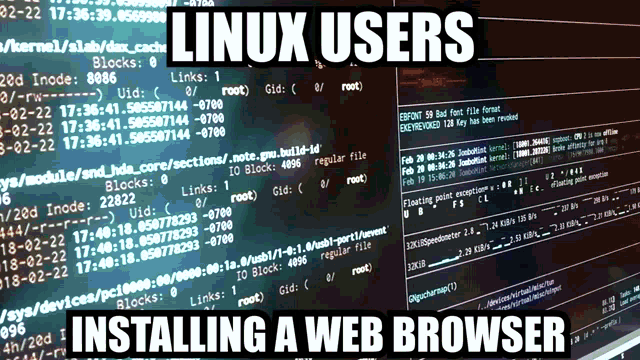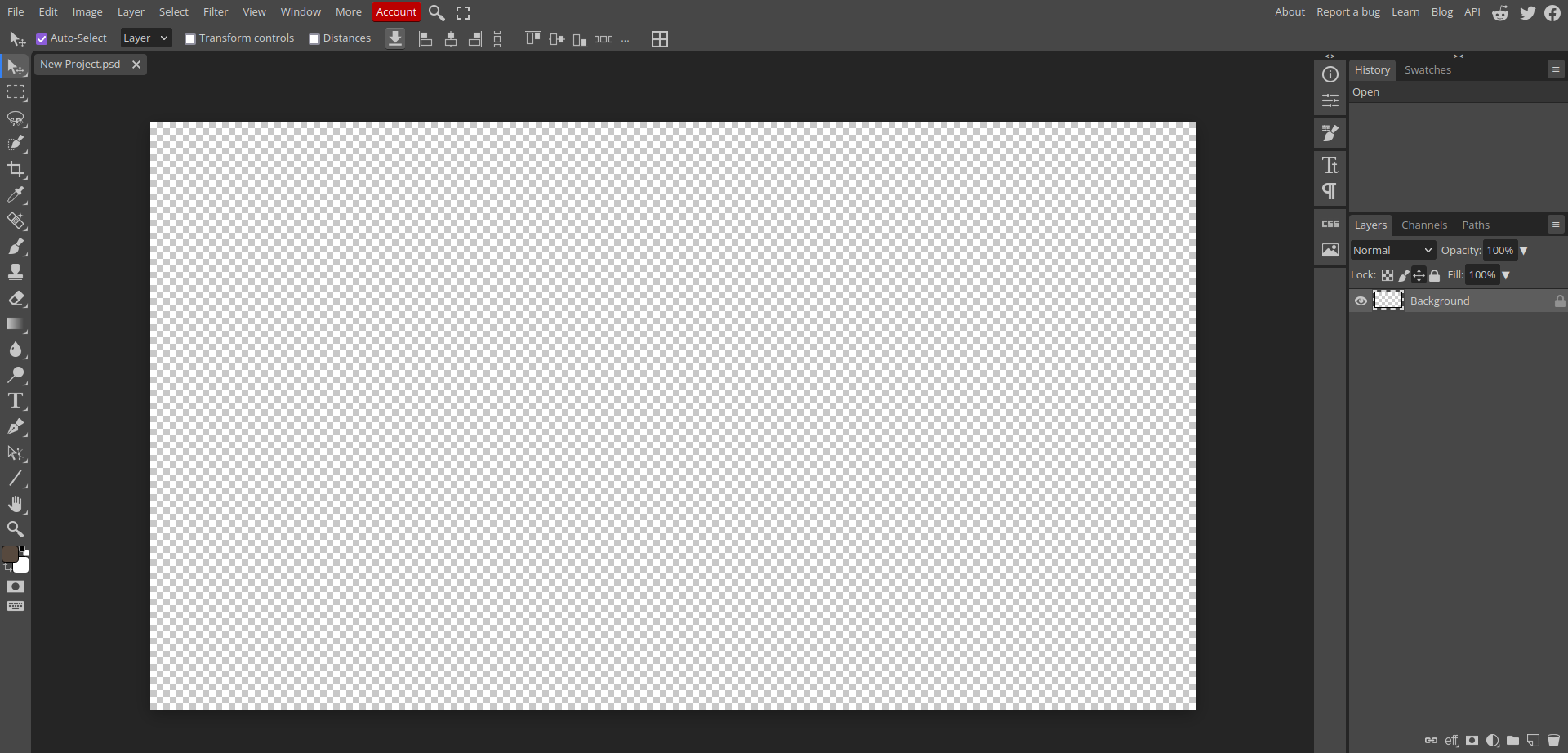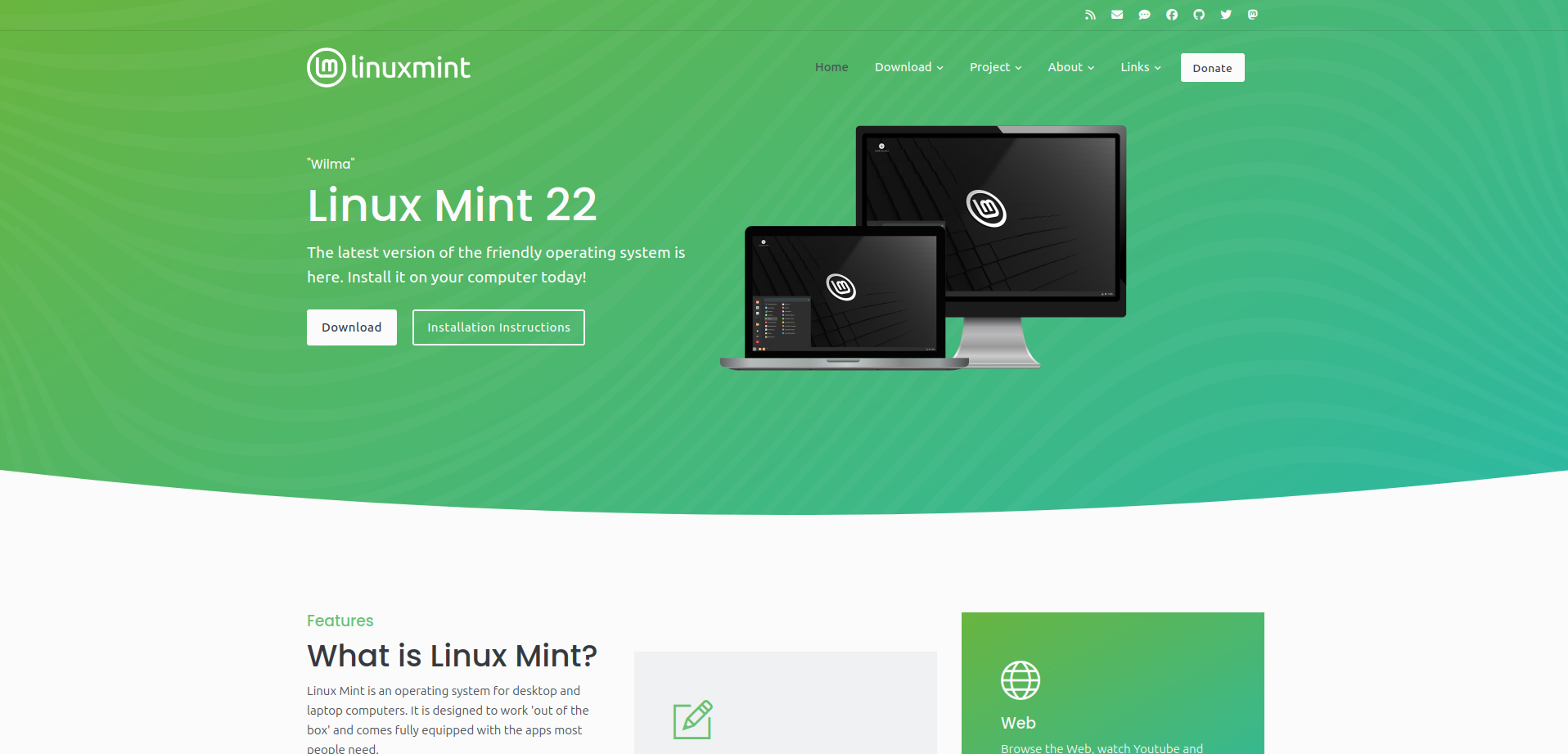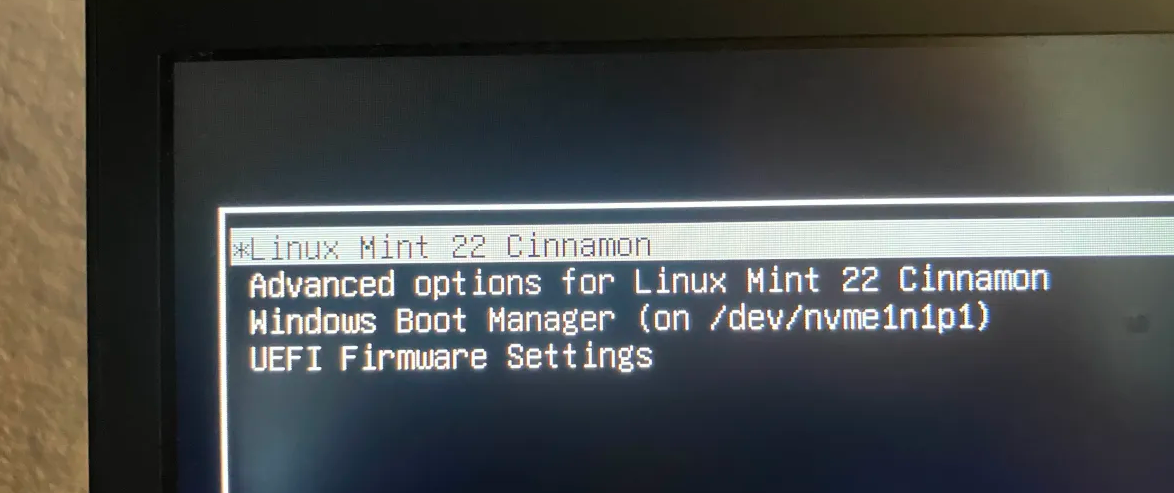I switched to linux (and you should consider it too!)
Written on: 2024/11/23
Tags: blogpost, linux, technical
I've disliked Windows for a very long time. Even before Windows 11 and everything that came with it (including the push for AI which I'm not a huge fan of but that's for another time). I've just always found it to be kinda annoying and limiting. It's also tied to a big corporation so of course it also tries to squeeze money out of you.
I've also known about Linux for a very long time. I've wanted to switch for a while but it just seemed very daunting. From an outside view, it seemed like it was just a buggy mess that nothing was compatible with. Don't forget about the stigma that everyone who uses it is some huge nerd who has thousands of hours of experience being in a dark room but zero hours of experience talking to women. But, as I got more and more fed up with Windows, I finally decided to make the switch. So, I installed it!
And it didn't stick.
It took about 5 tries using Linux for me to finally "get" it. But now, I'm fairly happy with it, and I think more people should consider switching to it.
Of course, I understand that not everyone has the means to switch to Linux. Still, I want to talk about my experience with it! I don't consider myself to be a "power user" so I think I can approach this with a non-technical perspective. Of course, given the subject, things will get a little technical.
What is a linux???
Surely if you're reading this, you at least have heard about Linux. I won't go into a history lesson, but I'll give a brief primer.
It's a free and open-source operating system for your computer (though, you can install it on other things too). There is no one "Linux" that you can install, rather, there are several different distributions (or "distros"), each with it's own features, advantages, and disadvantages. The base is the same, but the technologies used between distros can differ. To someone who doesn't know what's going on (that used to be me!!), it can be really confusing. I feel like the confusion is one of the biggest hurdles that you would need to overcome to start using Linux.
Another thing about using Linux that turns people away is how tech-savvy you (supposedly) have to be to use it. While being technically savvy is definitely a plus, if you use a more beginner-friendly distro, you don't need to be tech-savvy to start using it (it will make you tech-savvy, though). You definitely need to be at least comfortable with using a terminal. While you don't need to use it for basic things as much as you used to in the past, you still need to use it sometimes.
I feel like, after using it a bit, Linux is not as bad as the general public makes it out to be! It's fairly user-friendly, and certainly not as obtuse as it used to be 10 or 20 years ago. You don't need a master's in compsci to use it anymore, but you still need to be comfortable getting into the nitty gritty with a computer. Overall, it has lots of room for improvement, and is certainly not as foolproof as the competition.

Okay... what's wrong with Windows though?
The main benefits of Windows are:
- It's already installed on most peoples' computers
- It just works (except when it doesn't)
- Pretty much everything is made with it in mind
And these are valid reasons to use it! But, for me, I feel like there are way more drawbacks:
- It's full of stuff you don't need, taking up your computer's resources (and sometimes, your attention!) and making it run slower than it could
- Really annoying about updates
- It's run by Microsoft, so it tries to squeeze money out of you with telemetry, advertising, onedrive, etc (tldr: capitalism, eww)
- Kinda limiting in terms of customization. You can change... uh... the wallpaper. And maybe a colour
- Microsoft can do literally whatever it wants with it. They make a change you don't like? Too bad, deal with it
I could also go on and on with minor nitpicks too, but I feel above are the main reasons I moved away from Windows.
My failed attempts
My first try at installing Linux (a few years ago) involved dual-booting Linux Mint. For the uninitiated, dual-booting just means I install Linux at the same time as Windows, and I get to choose which one I want whenever my computer turns on.
I used it for a bit. It was cool! I though I could get used to it. But then, disaster struck. Everything worked fine, but the Bluetooth just refused to work. I use bluetooth earbuds quite frequently, so not having audio was a deal breaker for me. I spent hours trying to troubleshoot it, to no avail. It's entirely possible that the issue was with my earbuds, but I'm not going to buy a whole new set of earbuds just so it could maybe work.
A couple months later, I decided to try again, this time with Kubuntu. And, it actually stuck for a bit. I was able to get everything set up, and besides a few minor issues, I was quite happy with it. However, I couldn't help but feel that something was off. I'm not quite sure how to explain it. Like buyer's remorse but for operating systems. Even though everything mostly worked, things just didn't feel right. I ended up going back to Windows.
This cycle continued for a bit, with several different distros. After the fourth failed attempt, I figured that it's not a Linux problem. Maybe it's just a me problem. Maybe I'm just not cut out to use it. I just found everything to be way too confusing to feel comfortable with. I decided that if I tried using Linux again, I would need to radically shift my mindset.
Ultimately, I figured that... Linux is not Windows. It seems like a very obvious statement, but it's true! I kept expecting it to be close enough, and it kept failing me. For my next attempt, I would keep a more open mind and try to embrace any weirdness.
The attempt where it stuck
As of a few months ago (around May, I think), I've been using Linux Mint. I have it dual-booted with Windows, but I rarely switch into Windows except for school stuff (gotta love Lockdown Browser)
I've kept a more open mind this time. I've persisted through all the weird issues. Setting everything up how I like it took forever but I'm very satisfied with it. There was some weirdness during setup (for example, my microphone being extremely loud for no reason and jumpscaring my friends), but that's nothing a few web searches can't fix. And now, for pretty much the first time in my life, I feel no need to use Windows.
Now that everything is set up, it's actually been very fun! I like being able to see the inner workings of what's going on. It seems really scary at first, but once you get used to it, it's not too bad. It's just different. I've also been enjoying having wayy more control over my computer! Being able to customize pretty much anything is very nice. I also used to be very terminal-averse, but after using it more and more, I actually like it and think it's cool.

Updates have also been fine. Upgrading from Mint 21 to Mint 22 was kind of a headache, but that's entirely optional. Standard package updates have given me no problem at all, and stuff rarely breaks after updates, which I was not expecting. Sometimes stuff does break, but when it does it's minor and an easy fix.
So, why Linux Mint? Personally, it just felt like the most user friendly of all the distros I've tried. The developers seem like they really care about delivering a very polished experience. There's still some weirdness sometimes, but most of the time it works perfectly. I don't mind the tinkering that Linux sometimes requires, but I don't want to be doing it all the time, so Mint is perfect for me.
What does switching look like?
So far, this post has been more of an overview, without getting into the nitty gritty. But if you, my dear reader, decide to switch, just know that there will be nitty gritty. Lots of it. You'll need to be comfortable with troubleshooting weird issues. Sometimes you'll just run into something that feels unfixable, and you'll need to accept that you can't fix it right now. And you'll definitely be making a lot of web searches looking for solutions. It will be hard, especially while everything is new to you. But, in my opinion, it's worth it.
The first step to switching is making sure everything you use supports Linux. Even though there's several different distros, if a program offers a Linux version, it will work on pretty much whatever distro you end up using. A good amount of popular programs have Linux versions, but you'll probably come across a few that don't (most notably, any Adobe app). In that case, you'll either need to:
- Find an alternative
- Stop using it
- Give up and accept you'll have to use it on Windows
Which aren't exactly ideal solutions. You can run Windows programs on Linux through tools like WINE, but it's finicky and isn't super reliable. If a great deal of your programs don't work on Linux, I'd recommend holding off for now.

Also, games! A lot of AAA multiplayer games don't have great support for Linux, mainly due to the fact that the anticheat they use isn't allowed to be super invasive like on Windows. Personally, I tend to only play older or indie singleplayer games, so I didn't come across this issue. If you play your games through Steam, and you tend to play the same types of games I do, you essentially don't have to worry about any compatibility issues, as Linux support for games is one of their main priorities (the Steam Deck runs on Linux!).
Regardless of whether or not all your programs work, I'd recommend starting with a dual boot. This gives you an easy way out if you decide you don't like it, and also still lets you use your Windows programs if you absolutely need them. You can have both Linux and Windows living on the same drive, but I would recommend separate drives if possible. This is because Windows is not a huge fan of sharing its living space, and prefers to have an entire drive to itself. Also, if you're in a situation where you want to install both Windows and Linux when Windows isn't already installed, make sure to install Windows first because it tends to overwrite stuff.
Some other weirdness you should probably know about before proceeding:
- If you use Discord, you can't share audio when sharing your screen. Why? Who knows
- On Linux there tends to be several different ways to install apps, each with its ups and downs. Some of these include system packages, flatpaks, and snaps. I won't go into detail, but I'd recommend avoiding snaps if you can (they're kinda weird). One of the reasons I like Linux Mint is because it completely disables them.
- If dual booting, you can access your Windows files (documents, etc) from within Linux, but not the other way around
Now, what distro to choose? There's so many! Personally, I'd recommend:
- Linux Mint (that's what I use!)
- Kubuntu
- Pop OS
I feel that these 3 are the most beginner friendly you can get. They're all fairly different when it comes to the interface, but below the surface, they're pretty similar. I will not compare their similarity to Windows, because as I said earlier, Linux is not Windows. You should not expect them to be the same. I feel like this is a key part of not quitting super early.

Note how I didn't list Ubuntu. I've tried it before and wasn't a huge fan (also, the maintainers are a bit money-hungry). You may also hear people talking about Arch. I would advise against it, as it's the complete opposite of user-friendly, especially for beginners.
For dual booting, I'd recommend following a tutorial online. I'm not going to write one (at least, not yet) since I feel like other people can do a better job explaining the details. The general steps look like:
- Make sure you have empty space on a drive of your choosing (and when I say empty, I mean empty. This space should have no partitions in it)
- Download your distro and use some sort of tool to write it to a flash drive
- Go into your computer's bios and tell it to boot from flash drives (you might need to look up how to do this)
- Boot from the flash drive and continue the setup process
- Some distros may configure everything automagically. If not, you'll have to assign partitions yourself
- A lot of dual boot guides recommend making separate partitions for different parts of the operating system. I find this to be confusing and not very intuitive for beginners, and you only really need to do this if you really know what you're doing. Personally, I just assigned the entire empty space to "/", and that worked just fine for me.
- Let the installation process finish and reboot
- If your computer boots back into Windows, go back into your bios and tell it to boot from the partition you installed Linux on
- When starting your computer, if the dual boot was set up correctly, you should now get a choice of operating systems to boot into!

If you decide you don't like Linux, you're able to easily switch back into Windows. If you really don't like Linux, and want to completely undo the dual boot, I'd recommend looking up a guide, just so you don't accidentally mess up your system (you won't irreversibly damage anything, but it's better to avoid annoyance and frustration if you can, right?)
And, finally, it's okay if you dont like it. If you have to try it 10 times before getting into it, that's okay. If you try it once, decide it's not for you, and then go back to Windows forever, that's okay too! If you read this post and decide that it just seems like too much work, that's okay, but I feel like you should reconsider sometime in the future. I just want you to know that you have options, and you're not locked into Windows.
Closing thoughts
In short, I think Linux is really cool and I think you should try it at least once sometime in your life. Maybe you'll hate it, but you never know until you try. You might even really like it! Maybe it'll take you a few tries to get into it. It did for me, and that's okay. You can't expect everything to go perfect the first time around. And the prospect of altering your computer on a such a low level is scary. The prospect of such a big change is also very scary. But I think it's also very rewarding.
But ultimately, my main motivation for switching to Linux was my extreme disdain for Windows. Windows is serviceable, but it should not be the only option. Unfortunately, for many people, they believe it is (I'm not gonna start talking about macOS here, this is long enough as it is). Sure, Linux isn't the best. But, it gets better year after year. It gets more accessible year after year. And, I feel like, if more people use it, the rate of improvement will increase a lot.
At the end of the day, I feel like it's a choice between convenience and freedom. Sure, most people like convenience. You don't really need to put in any work, everything is just done for you. But, if you're willing to put in more work, you can open up a world of possibilities and possibly be happier for it. I feel like this could apply to a lot of things, but it certainly applies here.
Of course, I'm me and you're you. What works for me might not work for you. But it's worth a try. And, as always, if you have any questions, feel free to contact me
Cya next time! ^_^